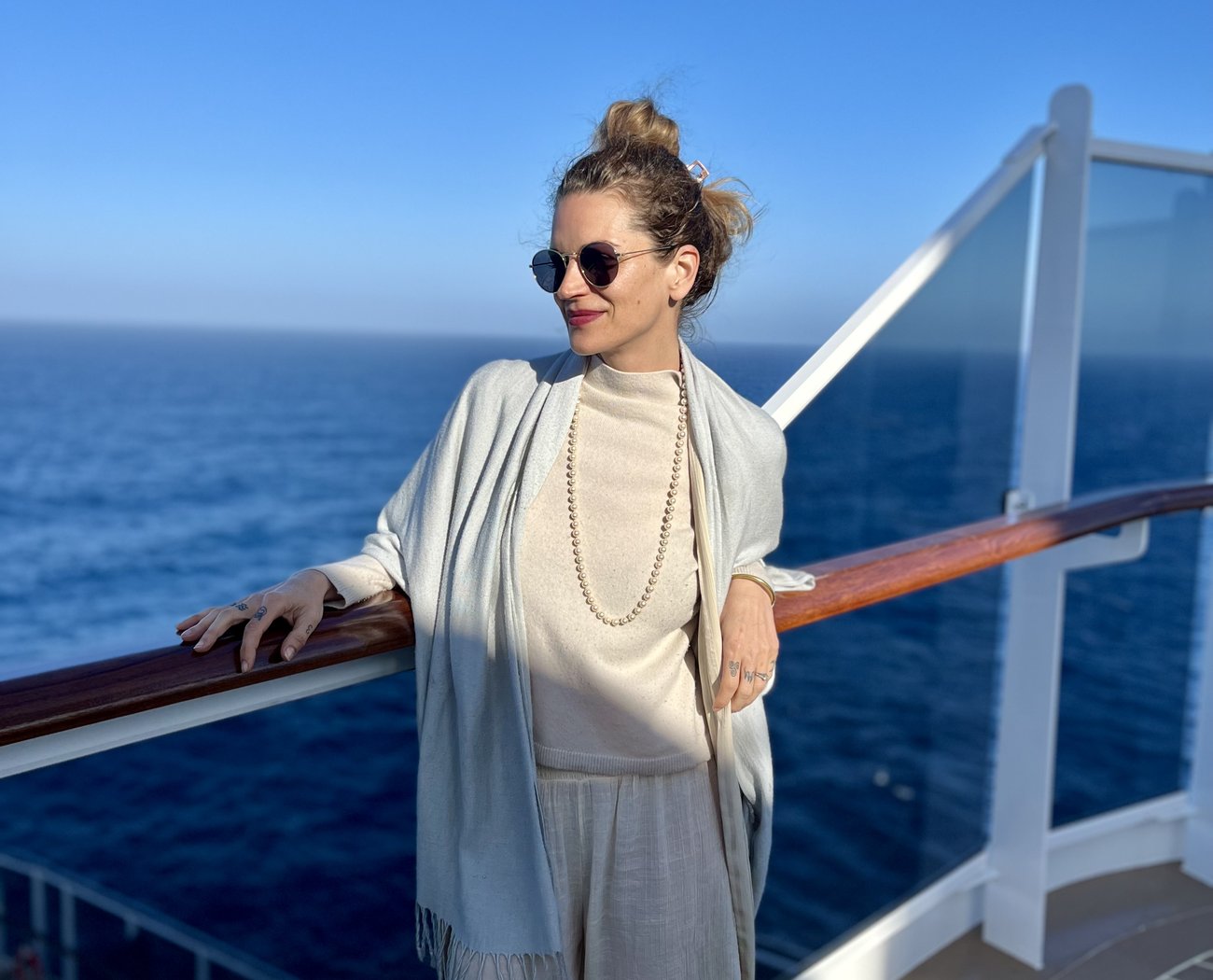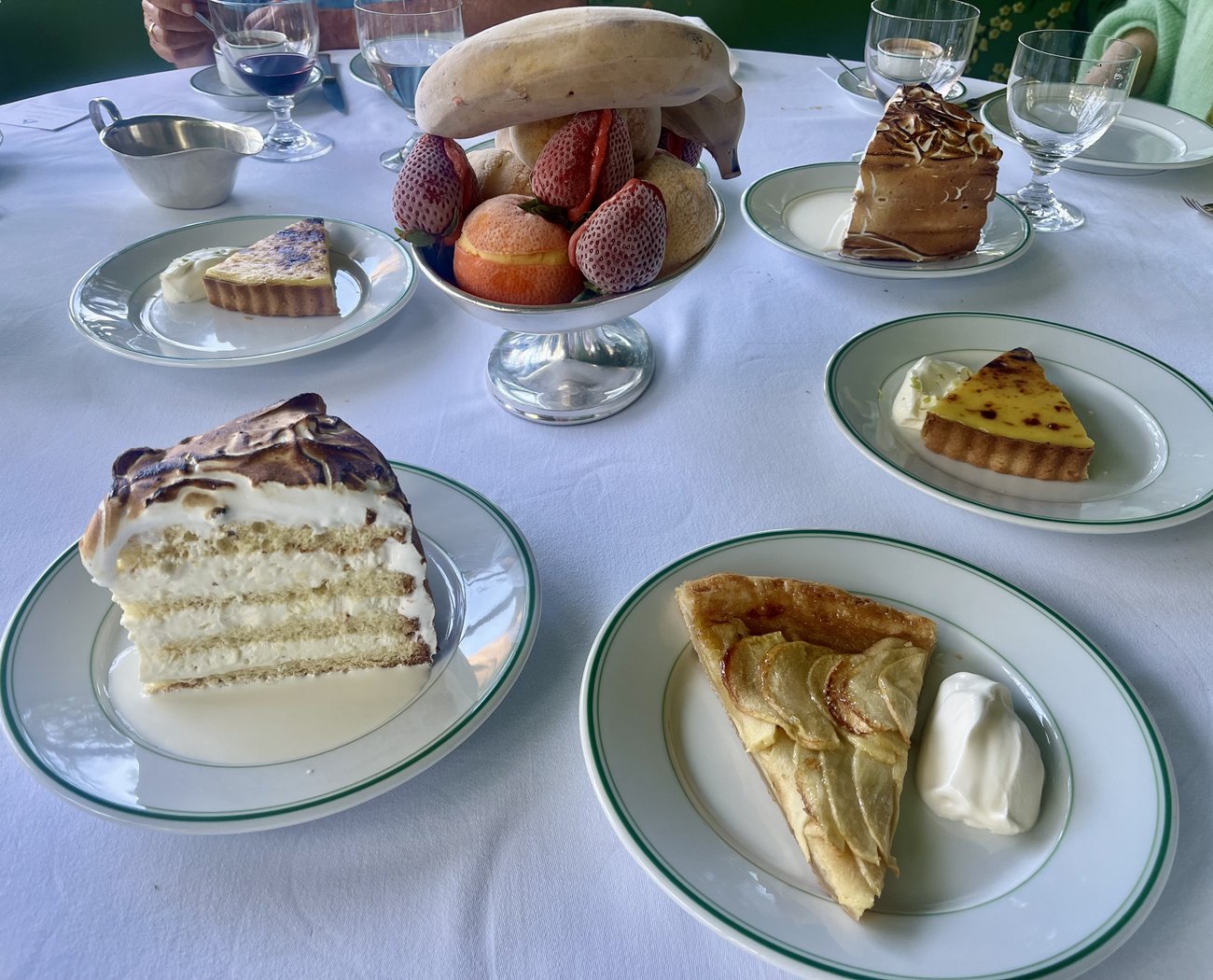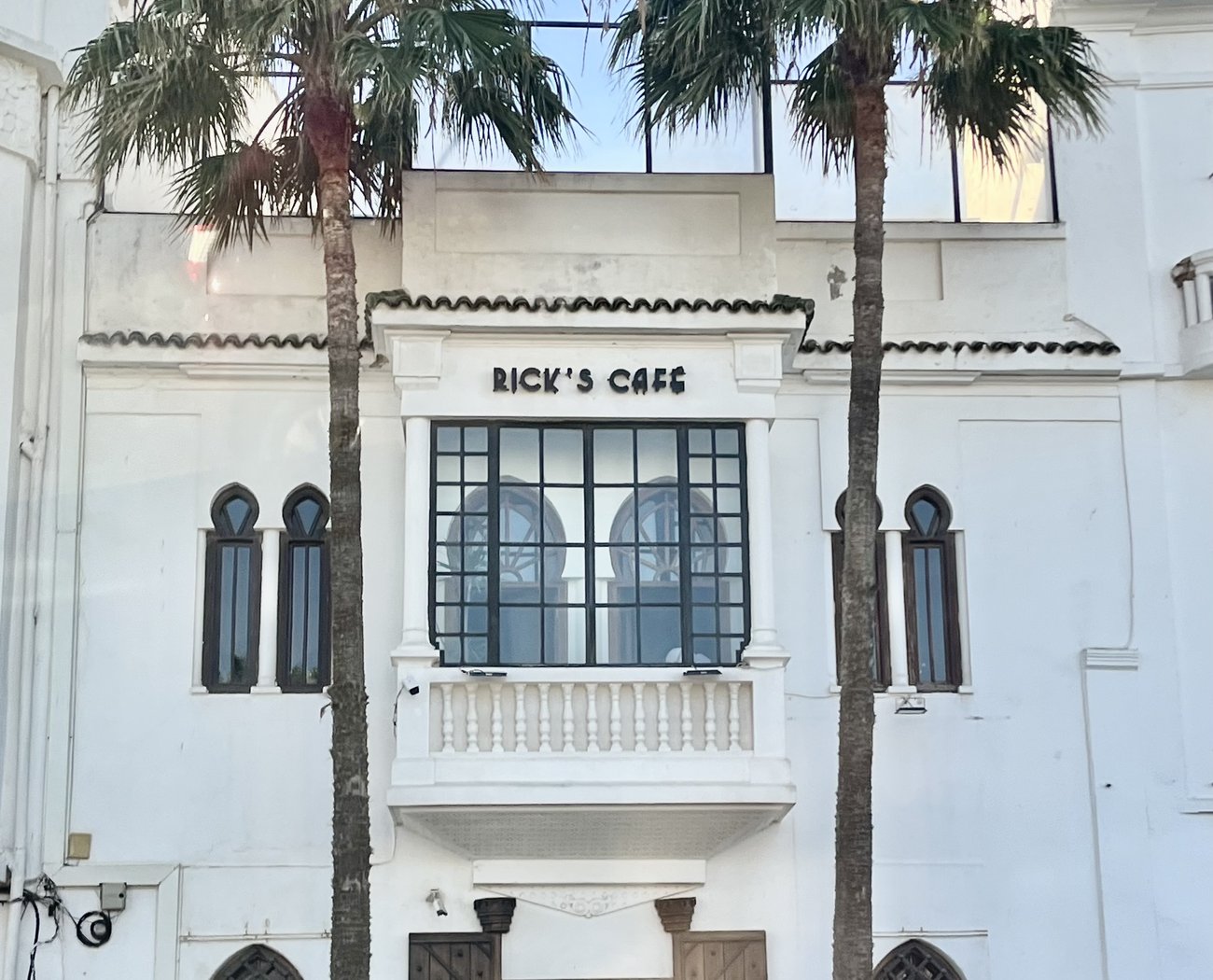Telephone: +4915172664064
From Addiction to Alignment: Deluxe penthouse suite. Sunset drinks on the open sea. All-inclusive delights. What looked like pure indulgence became something deeper: a moment of radical clarity. Surrounded by everything that once triggered me—I felt whole. Present. Free. This isn’t just about a cruise from Barcelona to Casablanca. It’s about the journey within.

All-inclusive used to mean danger. Today, it means peace.
For decades, I couldn’t understand why I came home from beautiful trips feeling hollow. Why the most luxurious experiences—those others would envy—left me raw, exhausted, and somehow even more disconnected. It’s only now, years into my healing journey, that I understand: I wasn’t truly there. Parts of me were still fighting invisible battles, locked in survival mode.
I’ve just returned from a press trip aboard the luxury cruise ship Explora II. It was a stunning journey from the Mediterranean to Morocco—through Gibraltar, Tangier, and Casablanca. But more than a story about ports and panoramic views, this is a story about the voyage inward.
Explora II is all-inclusive. For most people, that means freedom. Opulence. A chance to indulge. For me—back in the day—it would have meant danger. Chaos. A quiet but deadly collapse behind a closed cabin door. All-inclusive travel would have meant a free pass for my addictions: food, alcohol, sex, and self-sabotage. The perfect environment for my firefighter parts, as they’re called in Internal Family Systems therapy, to go amok—masking pain, numbing wounds, burning everything down with a brutal violence that could have destroyed lives –mostly my own– in a desperate attempt to survive.

I grew up in a world where looking good was everything. Being slim was admired—maybe even expected. It showed discipline, strength of character. And we were good at looking the part—successful, polished, respectable. And while that brought a kind of order, it couldn’t replace what was missing underneath: emotional safety.
I had everything a child could dream of—including my own horse, a lifelong wish I believed would finally make me feel whole. And in many ways, that horse did save me. It gave me a connection I could trust. But it’s not the same as feeling emotionally safe with your parents. And that—I didn’t have. So I adapted. I performed. I coped. I carried the ache alone. For a very, very long time.
As a teenager, that ache found a way out. When I was unguarded and no one was watching, I’d fall into frenzies that felt unstoppable—days of binge-eating and purging. Not because I really wanted or had to lose weight—I was already thin—but because something inside me was desperately hungry in a way I couldn’t explain. For those unfamiliar with bulimia, know this: it has very little to do with vanity. It’s not really about chasing thinness. It’s about trying to feed a soul that never learned what real nourishment felt like. When you don’t know how to meet your emotional needs, food becomes a substitute. A frantic, comforting, and ultimately devastating one.
So while I was battling a hunger I couldn’t control, I also knew I couldn’t afford to let it show. That’s how bulimia became the only way to survive both the craving—and the image. A secret disorder for a secret ache. Back then, emotional depth wasn’t part of the conversation. Not at home, not in society, and certainly not in the 1980s, when image trumped intimacy. Achievement, status, and surface success were the metrics of a life well lived. And I did what was needed to appear like I had one. But eventually, the performance became too much. And when I couldn’t hold it all together anymore, my body stepped in. I didn’t have language for emotional malnourishment—but I had cravings. Relentless, unbearable cravings. And I punished myself for them. I blamed myself for not being able to just be okay.
Instead, I self-harmed. I hated myself. And there were days I no longer wanted to live.

Later in life, that implosion found new forms: binge drinking. Sex. Opium. Cocaine. Brief moments of elation that came at high cost. They numbed the ache—for a while. But the ache always came back louder. What I want to share now is this: back then, a luxury cruise like this would have broken me. I’d have turned that deluxe suite into a prison cell. Eaten myself numb. Drunk myself blind. Spent the night with a stranger only to wake up lost and empty. Days escaping my own body. My own mind. And then I’d come home wondering why I felt so hollow after something that looked so beautiful from the outside.
But man, has that changed.
Today, I am authentic. I am present. I am free to enjoy. The cruise. The cake. The connection. The company.
People used to ask me, “Why can’t you enjoy the good things in life?” I couldn’t explain it then. But I can now: Because when your mind is a battlefield and your body a war zone, no amount of luxury, love or experience ever feels safe enough to enjoy. You don't know how to. You can’t take in beauty when your entire system is bracing for impact. I’ve spent decades doing this work. Deep healing. Hard truths. Radical honesty. Parts work. Inner child work. Addiction recovery. I have done it all, and I’m still not done. I’m still growing. Still expanding.
But today, I am at peace. I have earned that peace. Every bit of it.
I could finally sit at dinner and savour the food. Not inhale it to fill an emotional void. Not pick at it out of guilt. Just taste it. Enjoy it. I could speak with people — not on autopilot or from my performing protector parts — but from a place of presence, real interest, and empathy. The suite they gave me was exquisite. Understated, thoughtfully designed — all soft fabrics (I loved the cashmere plaid!) and clean lines — but for me, it was more than that. It was a quiet kind of victory. A physical reminder that I had built something. That this life — this moment — was mine. Not inherited. Not given. Not staged. Created. From scratch. By a woman who had once hidden under duvets and deadlines, afraid and unable to feel anything.
Our first day at sea was all sun and softness. I wandered the decks alone, not lonely. Just content. I watched other passengers — couples from the States, stylish retirees from Austria and Switzerland — and rather than feel like I didn’t belong, I simply observed them with curiosity, even joy. No judgment. No self-attack.
In Granada, I was completely undone by the Alhambra. There’s something about a place that old and beautiful that humbles you. At the Mirador de San Nicolás, a small flamenco band played while the sun kissed the old walls of the fortress. Tangier brought a new kind of beauty. At Villa Mabrouka, Yves Saint Laurent’s former — absolutely stunning — home, we sat down to a meal that was, quite frankly, decadent. Moroccan salads and tagine, homemade ricotta ravioli, lemon tart, apple pie, pear ice cream — and I ate every bite without a single whisper of shame.
That alone is a revolution.
And then came Casablanca — the city I’d romanticized for half my life. We managed a peek at Rick’s Café, then stepped into the holy halls of the Hassan II Mosque. The last time I felt that humbled was in the Hagia Sophia in Istanbul — the only time I’ve cried inside a religious building. This time, I came close. By the end of the trip, I wasn’t exhausted. I wasn’t desperate to go home and recover. I was full — in the way a woman is full when she has stopped apologizing for taking up space in her own life.
And that, I think, is the real luxury.
So here’s to rising from the ashes. Here's to looking at you, Kid.